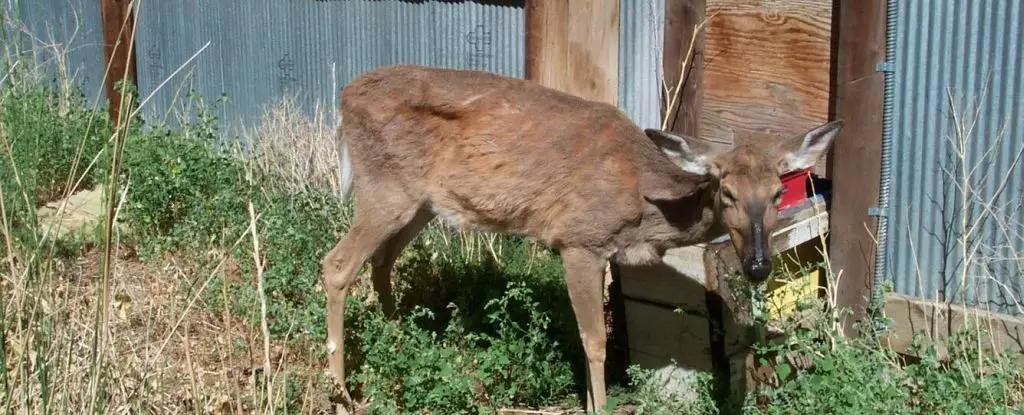A recent medical case report has sparked concerns about the possibility of a deadly prion disease transferring from deer to humans. This alarming discovery has raised questions about the safety of consuming venison from deer infected with chronic wasting disease, also known as “zombie deer” disease. In this article, we will delve into the details of the case report and analyze the potential risks associated with zoonotic prion disease transmission.
Deadly Consequences
The case report highlights the deaths of two hunters who consumed venison from deer known to be infected with chronic wasting disease. The first victim, a 72-year-old man, presented with rapid-onset confusion and aggression before succumbing to Creutzfeldt-Jakob disease, a fatal prion disease. His friend, a member of the same hunting lodge, later died after showing similar symptoms. This unfortunate incident sheds light on the potential dangers of consuming meat from animals infected with prion diseases.
Prion diseases, such as Creutzfeldt-Jakob disease, are characterized by misfolded proteins that propagate the abnormal folding process, leading to widespread tissue damage in the brain. These diseases are incurable and fatal, often resulting in rapid neurological deterioration and dementia-like symptoms. The insidious nature of prion diseases makes them difficult to diagnose and treat, posing a significant challenge to healthcare professionals.
Chronic wasting disease is a contagious prion disease that primarily affects deer, elk, and moose. Research has shown that the disease can be transmitted through bodily fluids, such as blood and saliva, and may have the potential to infect humans. Despite the known risks associated with consuming meat from infected animals, a disturbing number of cases involving the consumption of infected animals have been reported in recent years. This trend raises concerns about the spread of prion diseases to humans and the implications for public health.
Caution and Prevention
The case report serves as a sobering reminder of the potential dangers posed by zoonotic prion disease transmission. While the exact source of the illness in the two hunters remains unclear, the proximity to deer populations infected with chronic wasting disease raises red flags. As prion diseases can emerge spontaneously or through consumption of infected animal products, it is crucial for individuals to exercise caution when handling or consuming deer meat. Further research and surveillance are needed to assess the risks of zoonotic prion transmission and to protect public health.
The case report underscores the importance of understanding the risks associated with consuming meat from animals infected with prion diseases. By raising awareness about the potential dangers of zoonotic transmission, healthcare professionals and policymakers can work together to implement measures to prevent future outbreaks and protect human health. It is essential for individuals to educate themselves about the risks of prion diseases and take necessary precautions to minimize exposure to infected animals.

Leave a Reply